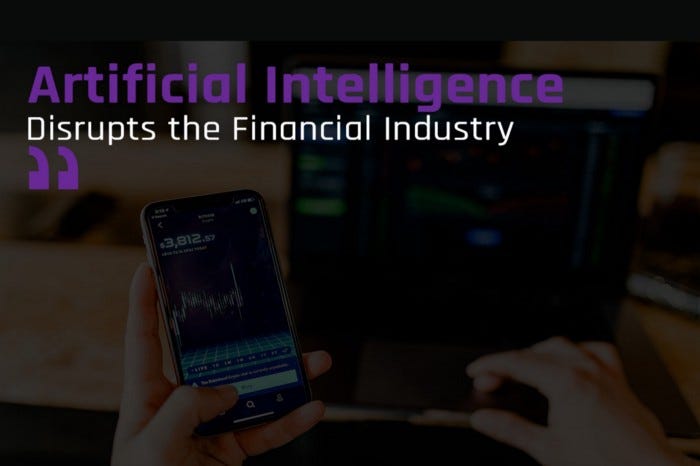Artificial Intelligence Disrupts the Financial Industry

Artificial Intelligence (AI) chess gamers and poker players have already proven they could beat human masters. What’s to stop AI from doing the same with financial markets? What happens when AI becomes a portfolio player?
To some extent, it already has, even though investment success relies strongly on human interactions. In fact, very few industries depend on employees’ decisions as much as the financial markets. With AI, are these human decisions being overwritten by machine learning? The reality is that “algorithm trading” has already impinged the market, exacerbating the exclusive Down Jones plummet of 700 points in 20 minutes back in February 2018. Traders and analysts agreed that the growing speed of algorithm trading models and automated sell orders impacted the collapse that day.
There are many positive roles that AI can play in the financial industry. AI algorithms can reduce risk, detect and manage fraud, improve operational efficiencies, and deliver improved customer services. For example, there are systems currently in place within banks and other financial institutions that flag irregular behavior on accounts. Machine learning takes this function to a higher level by providing information that is much more sophisticated and precise. The Financial Times had reported a case of identity theft that was detected when the criminal used the scroll bar on a user’s site. The actual user consistently used a trackpad when banking online, and based on this inconsistency, the bank’s AI picked up the discrepancy. Technology efficiencies are already in place with many large finance corporations. AI again goes beyond this as algorithms provide highly-functioning robotics for operational processes and customer service.
The greatest intrusion and the biggest impact on the finance sector — whether it’s perceived as good or bad — is that major banks and hedge funds are using information gleaned from machine learning algorithms to advise clients on portfolio investments. According to Deloitte, the pre-AI analysis relied on financial statements, earnings reports, press releases, investor presentations, blogs, and news articles. The process was painstakingly tedious. AI analytics are now able to process not only these sources of information but also digital and non-traditional massive amounts of data such as web and social media information. This data can be calculated using natural language processing capabilities to give investors instantaneous trading tips. But, here’s the caveat:
Past performance is not necessarily an indicator of future performance.
It’s the footnote on any investment report or statement, and it is a critical factor to keep in mind when selecting investment advisors or portfolio managers based on their AI capabilities. While all the newly available data can improve holding decisions, there are intangible market factors and an advisor’s intuition that won’t always be captured by AI. Keeping that in mind, prudent investors should do their own research and ask their advisor how AI is playing a part in their company’s processes. It’s safe to say that firms that are not actively gathering big data and employing AI processes with sophisticated algorithms will not remain competitive in the future.
As finance investors continue to have angst over AI and the markets, the logical viewpoint that Mike Chen, an equity portfolio manager at PanAngora, shared with CNN in an interview earlier this year is a great stance, “It’s not man versus machine. It’s man plus machine.”